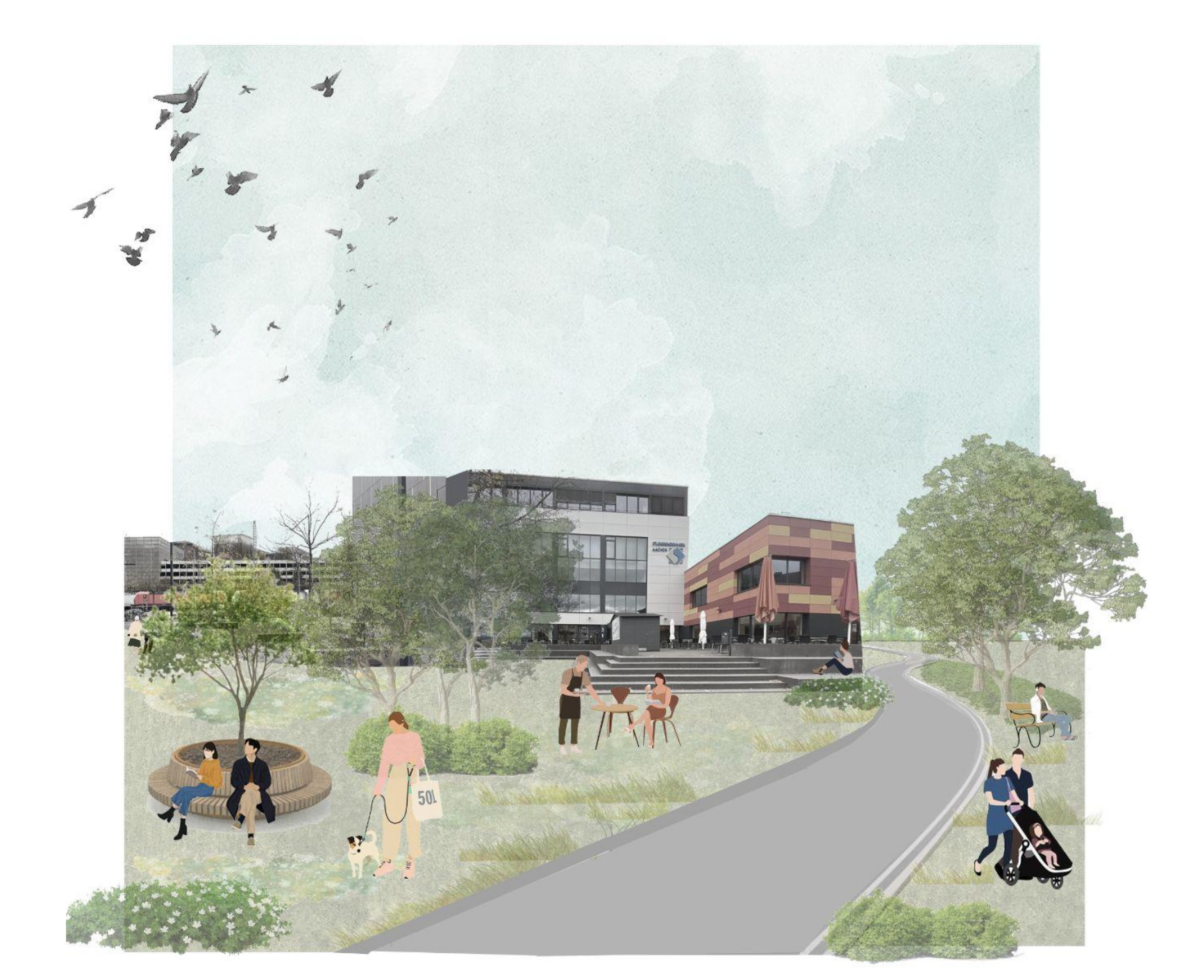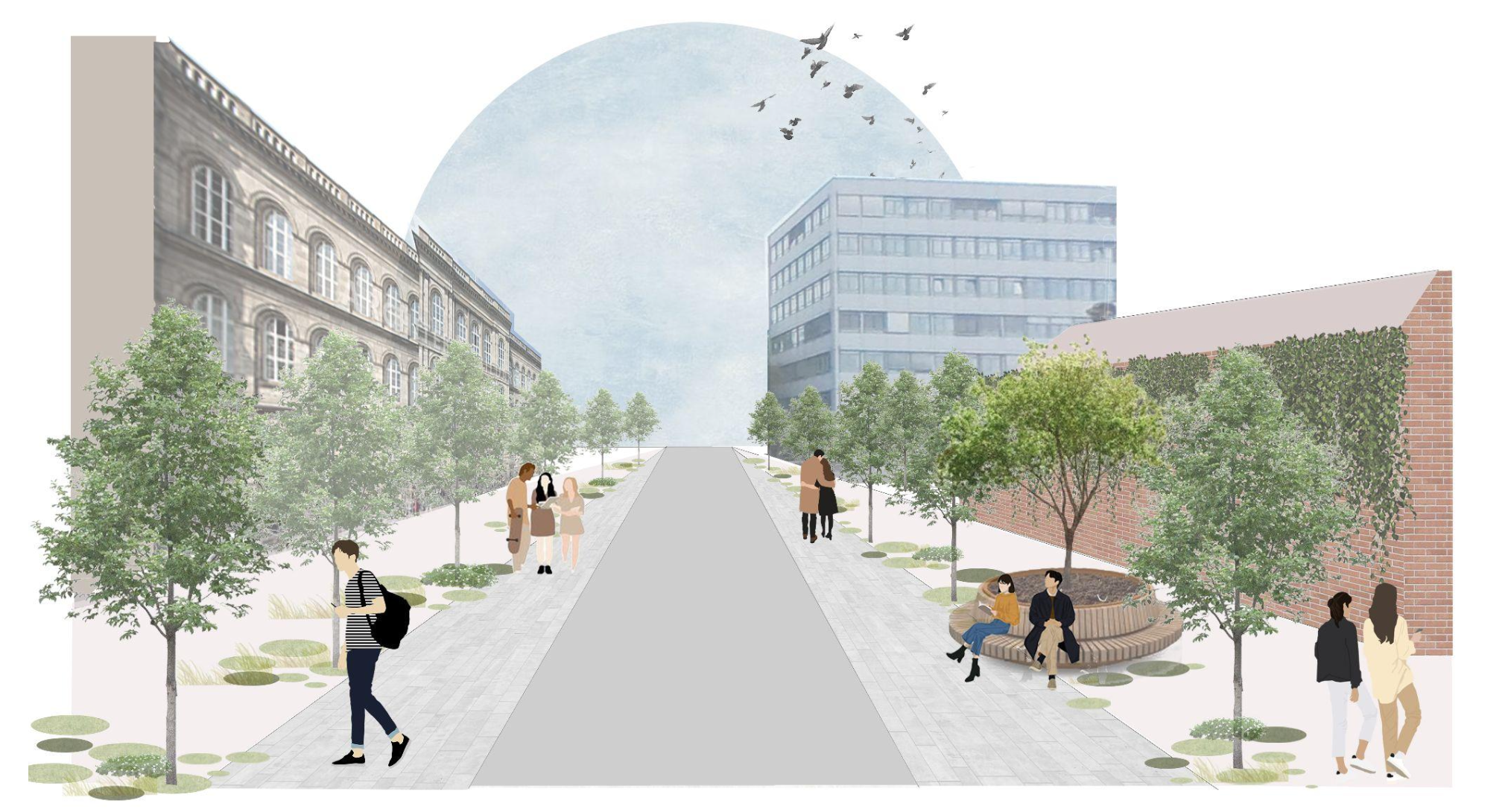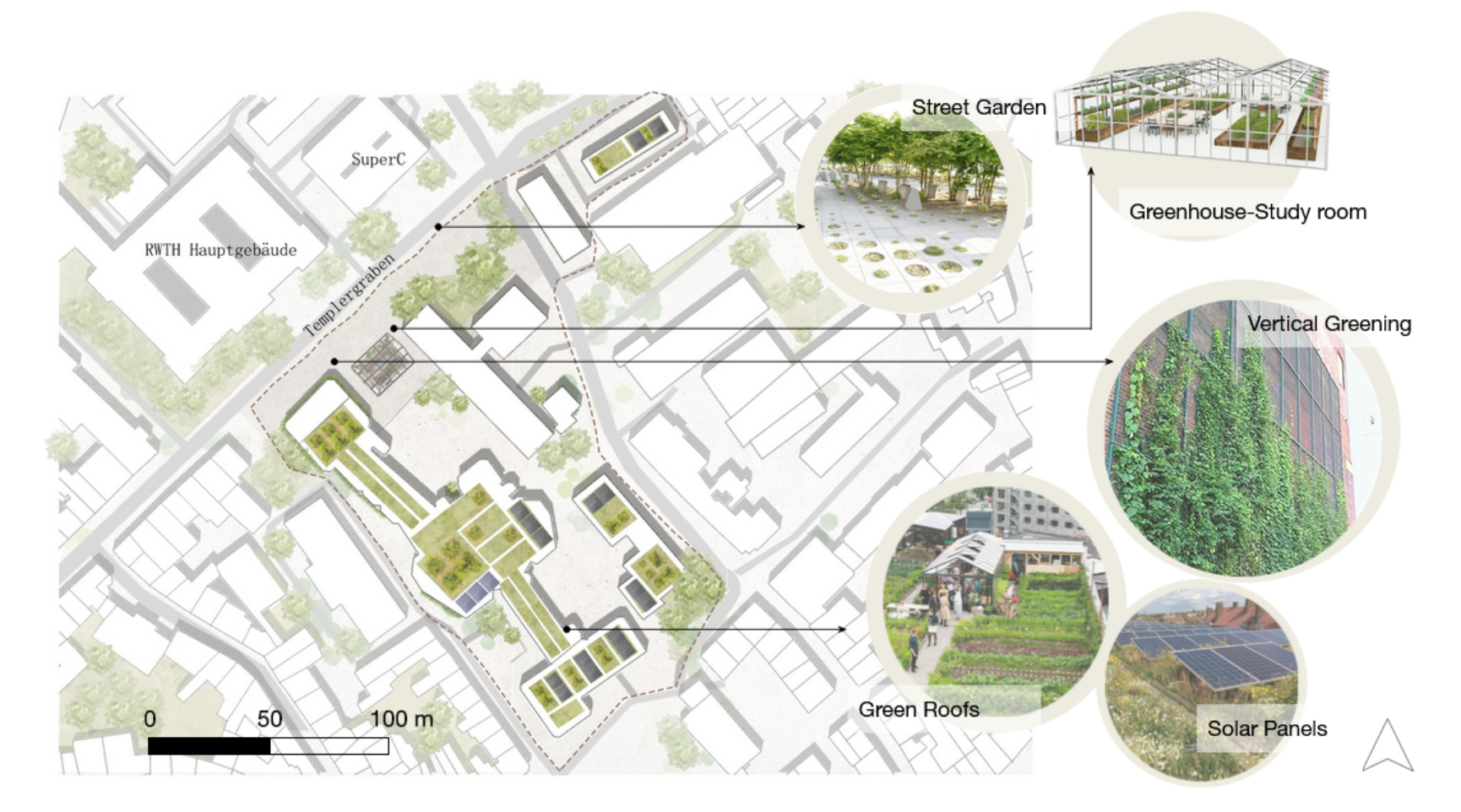Green and Soft Campus – Designing more sustainable ways of living for a Greener and Softer CampuGreen and Soft Campus
Student Project: Integrated Project II University campus as a living lab: rethinking public space for climate action at university campuses
Gaia Fassina, Yuchen Bai
Docent:
2021 Winter Semester
Sustainability has emerged as a critical issue in light of global warming and climate change, which are increasingly affecting our lives through extreme weather events. As students, we recognize the urgency of addressing these challenges, which will shape our future. Our project aims to leverage the diverse backgrounds and skills present in university campuses to create “living labs” that foster innovative solutions for sustainable living. By rethinking and reshaping open spaces—such as building facades, parking lots, and rooftops—we can improve the campus environment without adding new structures. This approach focuses on integrating ecological and community-driven principles to test and implement sustainable practices. Ultimately, we strive to transform the Aachen landscape while providing a model for other cities to follow.

The aim of this project is to develop methods and strategies for impactful living labs to improve climate resilient action at university campuses. It focuses on RWTH University Campus Area, a German University located in Aachen, which campus is divided in three major Areas: Campus Mitte, located inside the city centre and the oldest one, Campus West, which is being built yet, and Campus Melaten, which finds itself outside the central city area and it’s located away from the city centre.
The group goal was to create strategies to make the Aachen University Campus more sustainable and a climate resilient Aachen, with the proposal of a greener and softer campus, to design ways to improve citizens well-being and get biodiversity benefits through nature-based solutions and Creating more sustainable ways of living by using sustainable sources of energy, designing efficiently to reduce energy use, and updating the existing building and open spaces with new technology. Our project goals could be encapsulated in the title itself: Greener and Softer Campus.
Greener: it aims to use greening in the Campus Area and utilise natural-based solutions to improve the environment situation and also the life of the citizens.
Softer: Aachen is known for being a border city where many cultures meet and there is a high percentage of international students living in the city, that’s why we also wanted to improve the sense of community and connect the local inhabitants to the students.
To guide our vision for a more sustainable RWTH Aachen University campus, we adopted a comprehensive methodology rooted in interdisciplinary collaboration. We began by researching successful living labs and sustainable campus strategies from around the world, noting that effective projects consistently involved contributions from diverse faculties and fields. Recognizing the importance of community, we sought to integrate social factors into our approach, believing that strong networks would enhance the effectiveness and longevity of our initiatives.
Our analysis extended from the city-wide context to a focused examination of specific campus areas, including Campus Mitte, Campus Melaten, and the future Campus West. We gathered insights on key themes such as mobility, land use, environmental considerations, and social profiles, ultimately pinpointing areas ripe for improvement. This led us to develop a collective vision alongside two distinct individual projects aimed at enhancing sustainability on campus.
Our approach emphasizes a climate- and people-friendly open campus, focusing on three pillars: community, economy, and ecology. We aim to facilitate community engagement through local services and activities while promoting green technology to create job opportunities and secure food and energy resources. Additionally, we propose integrating natural solutions, such as green roofs and urban farming, to bolster biodiversity and improve mental well-being. By implementing nature-based and technology-driven strategies—collectively termed “Green Tools”—we strive to create inclusive public spaces that foster connections between the campus and surrounding neighborhoods. Ultimately, our goal is to cultivate a vibrant, resilient community that thrives within the evolving landscape of Aachen.



